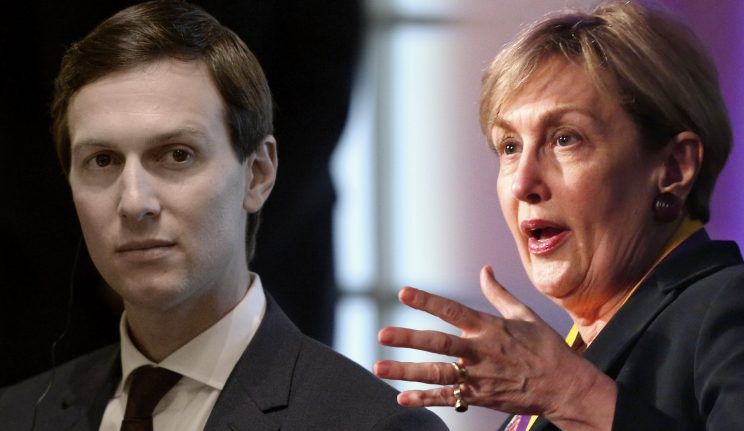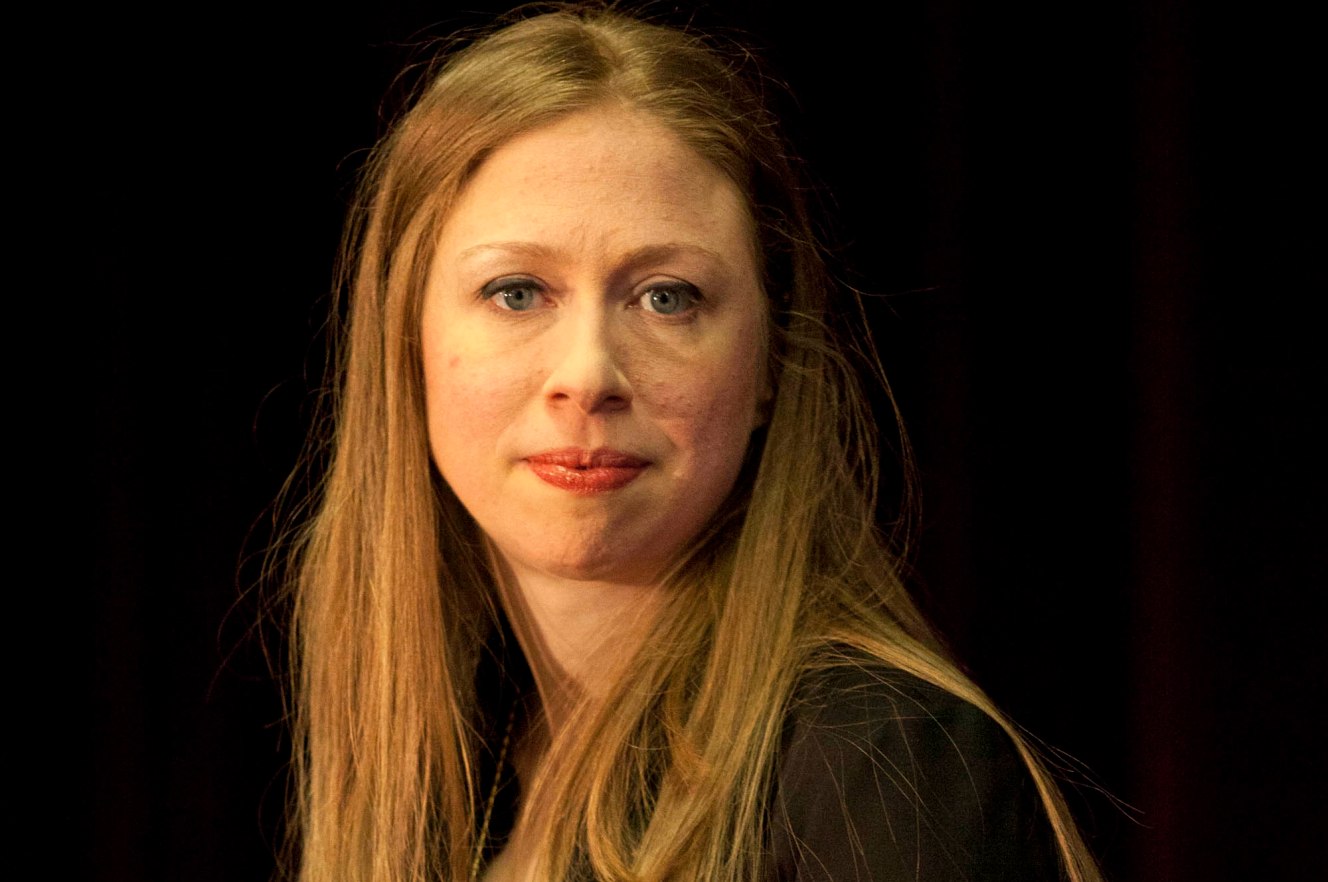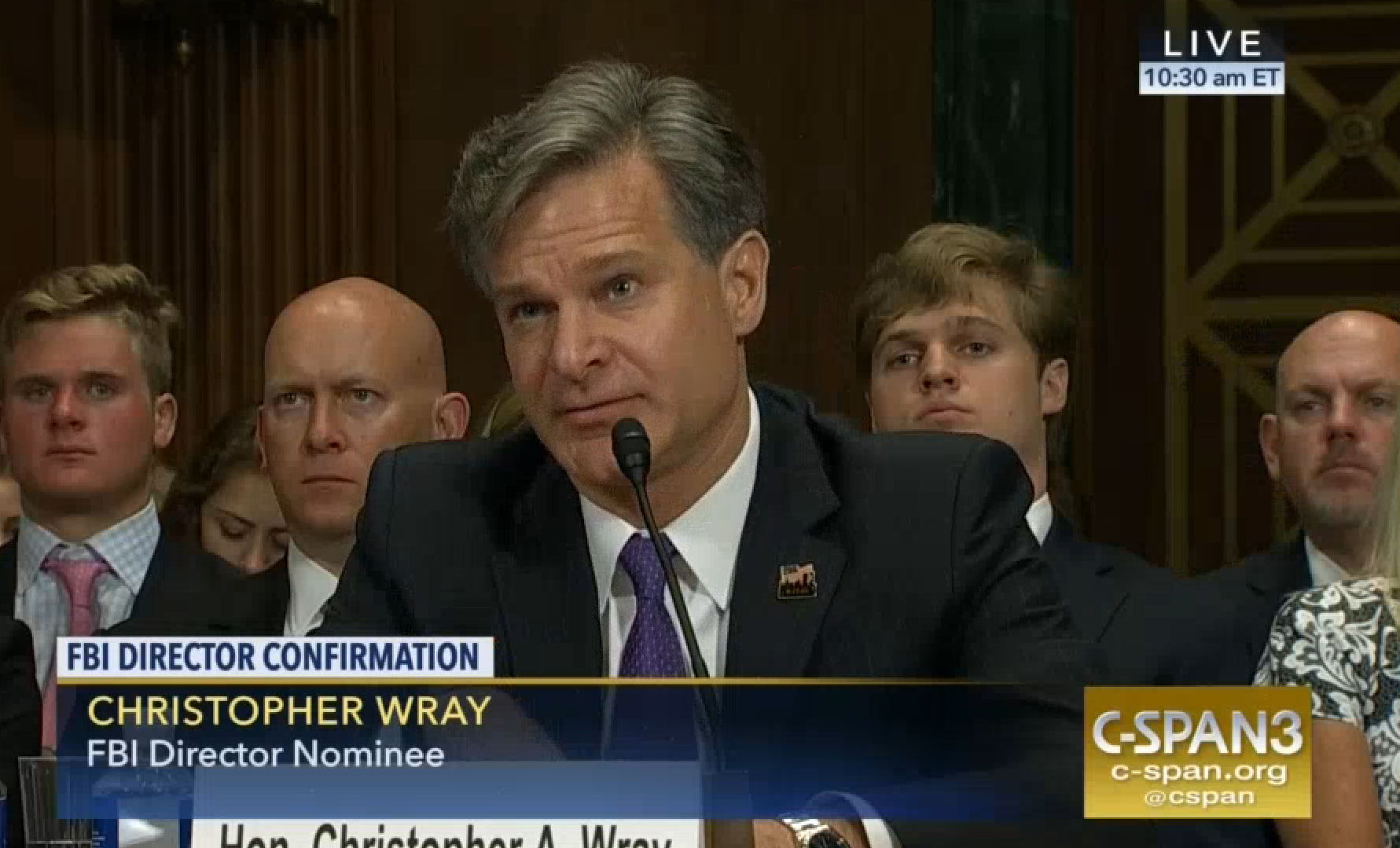
Attack, Attack, Attack
On May 22, just as a strange photo of President Trump, Saudi king Salman, and Egyptian president Abdel Fattah el-Sisi touching a glowing orb reached the apex of its memehood, Steve Bannon, who was lurking somewhere beyond the orb’s glow, got on a plane in Riyadh and flew back to his book-stuffed apartment in a glass high-rise in Arlington, Virginia.
For Bannon, the president’s chief strategist, the months leading up to the trip had been difficult ones. When Trump became president, Bannon quickly entered the popular imagination as both the dark mastermind of Trump’s upset victory and an ethno-nationalist ideologue who, with Trump, would lay siege to “the administrative state” and remake American government in Trump’s image. That agenda brought an early flurry of activity followed by a series of embarrassing upsets: Federal courts blocked Trump’s travel ban from seven Muslim countries, his national-security adviser Michael Flynn left under a cloud of suspicion, and the White House quickly descended into knife-fighting disarray.
Worse for Bannon was that his portrayal as Trump’s puppet-master — as #PresidentBannon — on Saturday Night Live and elsewhere infuriated a boss sharply attuned to his media image and allergic to sharing the stage, especially with someone thought to be controlling him. The killer blow was a February 13 Time cover featuring Bannon’s menacing visage above the headline “The Great Manipulator.”
Soon after the Time cover, encouraged by his son-in-law, Jared Kushner, Trump humiliated Bannon by stripping him of his position on the National Security Council, cutting him out of key meetings, and declining to voice his faith in Bannon, who he pointedly told The Wall Street Journal was just “a guy who works for me.” He later added that he was his own strategist. Even Bannon’s old friend Matt Drudge turned on him, fanning stories on the Drudge Report that highlighted his fall from power. “Drudge and Bannon have been close forever,” says one outside Bannon ally. “That was a big stab in the back for Steve.” Meanwhile, rumors spread that Kushner was trying to force Bannon out, a claim longtime Trump confidant Roger Stone amplified on Alex Jones’s radio show. Bannon griped to a White House colleague that Kushner was trying to “shiv him and push him out the door,” according to the Daily Beast.
Even as he was bottoming out, Bannon spied the next upturn. On April 6, the New York Times published a story revealing that Kushner had omitted meetings with Russian ambassador Sergey Kislyak and Sergey Gorkov, the head of Vnesheconombank, the state-owned (and Putin-aligned) Russian development bank, when he applied for top-secret security clearance. Those meetings, Bannon told White House allies at the time, were certain to become a problem. News accounts of White House battles between “nationalists” like Bannon and “globalists” like Kushner began popping up everywhere. When friends from his old life as chairman of Breitbart News warned Bannon about taking on the president’s son-in-law, Bannon scoffed. Watch, he replied, Trump won’t hesitate to sideline Kushner if he has to.
By May, Kushner’s situation had worsened considerably. After months of Trump fuming over the Russia probe, the president was considering firing FBI director James Comey, a move Kushner backed. Kushner and Bannon disagreed about the wisdom of the move. “You can’t fire the FBI,” Bannon told Trump, according to a White House official. Kushner thought you could and argued that Democrats couldn’t criticize the decision, since they’d already attacked Comey for his investigation into Hillary Clinton’s emails. But when Trump went ahead and ousted his FBI director, the move backfired, drawing angry condemnation from Democrats and almost everyone else. Trump looked as if he was trying to shut down a Justice Department investigation — and soon admitted as much to NBC’s Lester Holt — all but compelling Deputy Attorney General Rod Rosenstein to appoint Robert Mueller special counsel for the Russia probe.
By the time he left for Saudi Arabia on May 19, Trump had awakened to the danger the Russia investigation poses to his presidency. So he brought Bannon out of the doghouse and gave him a familiar mission: to organize a defense, go after his enemies, and head off the latest threat to Trump’s political career. Bannon’s first task was to create an outside war room to “put a prophylactic around the Oval Office,” as a White House official put it, one that would shield Trump from the encroaching crisis.
That agenda took on even greater urgency when a Washington Post report on intelligence intercepts of Kislyak’s conversations revealed that Kushner had discussed setting up a secret communications channel with Moscow inside Russian diplomatic facilities. Soon after, the Post reported that Mueller was investigating Kushner’s financial dealings and scrutinizing the meetings he omitted from his security-clearance application.
(Kushner hasn’t been charged with any wrongdoing and his lawyers say he is eager to cooperate with investigators.) According to advisers inside and outside the White House, Trump grew frustrated with his son-in-law, not just over the Russia stories but over reports that members of Kushner’s family, in an effort to entice Chinese investors seeking EB-5 visas to back a New Jersey real-estate project, hinted at their Trump connection. Both issues hastened Bannon’s resurrection.
His former position largely restored, Bannon is now back in his natural element, at the center of the chaos. He modeled Trump’s war room after the one set up by Bill Clinton to handle Ken Starr’s Whitewater probe. Bannon was convinced that Trump needed his own Lanny Davis — Clinton’s pit-bull lawyer and TV surrogate — to go against Mueller, according to a source familiar with his thinking. (Bannon even called Davis to consult him.) Trump’s new rapid-response team is thus heavier on lawyers than flacks, including Trump’s personal attorney, Marc Kasowitz, with whom Bannon worked closely during the campaign to investigate the women who came forward to accuse Trump of inappropriate sexual advances. But following the Clinton model could be hard for the Trump White House because it would require less obfuscation from the podium and a halt to the unhinged attacks on the press. “Bannon is right that Trump needs a team like Clinton had,” says Davis. “But his boss might kill him if he followed my advice: The way you deal with the media is answer all their goddamn questions and get it over with. The model only works if the person who’s being shoveled all the nasty questions has something to say.”
Recruiting talent has also been a challenge. Several top Washington law firms passed, and Bannon’s first choice for the Lanny Davis role, conservative attorney and radio host Laura Ingraham, ultimately rebuffed him after several in-person meetings. “Defending against Russia is the worst duty you can pull in the Trump White House, an impossible job where you can’t make the boss happy,” says GOP strategist Liam Donovan.
Leading the fight while everyone else is frantically lawyering up is exactly the type of loyalty Trump demands, though, and Bannon is especially poised to deliver. Despite his portrayal as Trump’s Rasputin, Bannon’s return was prompted less by his own influence than by the president’s needs. Nobody has ever really had the power to control Trump for long — a fact beleaguered White House officials can agree on. Bannon is less “The Great Manipulator” than Trump’s indispensable henchman, the man he turns to when everything’s going to hell. Bannon is astute enough to discern Trump’s desires and heedless enough to carry it out. “If the whole White House is backed up against the wall facing a firing squad, Steve will stay there,” says Ken Cuccinelli, president of the Senate Conservatives Fund. “Reince [Priebus] and the other guys will run.”
It’s not that Bannon can’t be a shrewd tactician — he often is — but his tactics are usually directed at tearing down his enemies, something he’s done on Trump’s behalf since the earliest days of the president’s political rise. Mueller looms as the greatest threat to Trump’s presidency, and is therefore the object of his chief strategist’s latest machinations. Bannon told an associate that one reason he set up the war room outside the White House, rather than inside, was so that his team would have more freedom to “throw some fucking haymakers.”
Bannon became a vital figure in Trump’s orbit during the early days of his political rise. The two met late in 2010, when David Bossie, the veteran conservative activist, brought Bannon along on a trip to Trump Tower to offer advice about how Trump might prepare for a presidential run. Like Trump, Bannon was a businessman and born deal-maker. With experience on Wall Street and in Hollywood, he was nothing if not high energy, a mile-a-minute talker with a volcanic temper who rarely slept and possessed a media metabolism to rival Trump’s own. And Bannon, too, had a healthy self-regard. On his office wall hung an oil painting of Bannon dressed as Napoleon in his study at the Tuileries, done in the style of Jacques-Louis David’s famous neoclassical painting — a gift from Nigel Farage.
Perhaps because of this background, Trump, whose habit was to surround himself with obsequious lackeys, took Bannon’s counsel more seriously than he did that of other advisers. Steve “was the only alpha male in his universe,” says one Trump associate. Trump was thus highly receptive to Bannon’s nationalist politics, particularly his hostility to illegal immigration, which flowered after Bannon took over Breitbart News in 2012. Long before Trump declared his candidacy, the billionaire was reading Breitbart articles flagged by Bannon and then printed out on paper (Trump’s preferred medium for reading) and delivered to him in manila folders by his staff.
Bannon also shared Trump’s love of spectacle. According to a former Trump adviser, Bannon was behind a needling stunt Trump pulled two weeks before the 2012 election. Having successfully badgered President Obama into releasing his birth certificate the year before, Trump started insinuating that his passport and college transcripts may also have been forged or missing. “I have a deal for the president, a deal that I don’t believe he can refuse,” Trump said in a blurry video he posted to YouTube. “If Barack Obama opens up and gives his college records and applications, and if he gives his passport applications and records, I will give, to a charity of his choice … a check, immediately, for $5 million.” Bannon told an associate he had lined up a donor, the conservative hedge-fund tycoon Robert Mercer, willing to supply half the sum (Trump would supply the rest). The media, chastened by the birther episode, didn’t bite. But the Trump-Bannon connection was cemented.
When Trump began visiting conservative political conferences, such as Bossie’s annual South Carolina Freedom Summit, he’d make a point of seeking out Bannon. “I remember Trump at the Freedom Summit going, ‘Where’s my Steve? Where’s my Steve?’ ” says Sam Nunberg, a former Trump adviser. “He loved the guy.” It was clear the connection was genuine, says Roger Stone, “because Steve is a slob, and Trump hates slobs.”
By the time Trump entered the presidential race in June 2015, Breitbart’s fixation on race, crime, immigration, radical Islam, and the excesses of political correctness — as well as the website’s dark and inflammatory style — had done much to inform Trump’s populist inclinations and his political vocabulary. (A BuzzFeed analysis of Trump’s campaign tweets showed that Breitbart was far and away his primary source of news.)
Trump’s announcement speech was pilloried for his charge that Mexican immigrants were rapists who were bringing drugs into the country. (“Extraordinarily ugly,” Jeb Bush called it; House Speaker Paul Ryan said he was “sickened.”) Bannon helped organize Trump’s response, defending him in Breitbart but also urging him to amplify — rather than apologize for — his anti-immigrant message. This involved another outrageous stunt: arranging for Trump to visit Local 2455, the Border Patrol union in Laredo, Texas, to deliver his message right to Mexico’s face, as it were. (The union’s Laredo spokesman had been a guest on Bannon’s radio show.) Under pressure from the national union, Local 2455 was forced at the last minute to rescind the invitation. But Trump came anyway, trailing a massive press contingent — and was clearly welcomed by the local border agents.
Trump loved the dropped-jaw reaction Bannon’s ideas produced on cable news. “Throughout the campaign — long before Steve actually joined the campaign — he was active through Breitbart, but also by providing very important and unsolicited advice,” says then–campaign manager Corey Lewandowski. “He would call Mr. Trump, or he would call me, and say, ‘Hey, here’s a recommendation.’ We talked to Steve a lot.”
For Trump, Bannon’s distinctive vocabulary was another point of his appeal. Bannon gloried in the slights and scorn directed at Trump supporters, proudly insisting that elitist Clintonites looked down on them as “hobbits,” “Grundoons,” and — co-opting Clinton’s own ill-advised term — “deplorables.” Anyone who thought otherwise was a “mook” or a “schmendrick.” And Clinton herself was the subject of a steady stream of derision, carefully pitched to Trump’s own biases and insecurities and delivered with the passion of a cornerman firing up a boxer for one last grueling round in the ring. Clinton, Bannon would insist, was “a résumé,” “a total phony,” “terrible on the stage,” “a grinder, but not smart,” “a joke who hides behind a complacent media,” “an apple-polisher who couldn’t pass the D.C. bar exam,” “thinks it’s her turn” but “has never accomplished anything in her life” — and, for good measure, was “a fucking bull dyke.”
Although Trump didn’t dwell on policy details, Bannon pitched in there, too. When Trump came under fire because his campaign hadn’t produced a single policy paper, Bannon arranged for Nunberg and Ann Coulter, the conservative pundit, to quickly write a white paper on Trump’s immigration policies. When the campaign released it, Coulter, without disclosing her role, tweeted that it was “the greatest political document since the Magna Carta.”
Bannon and Breitbart also operated as shock troops for Trump’s on-and-off war with Fox News. Trump’s fixation with the cable network was a powerful force throughout the campaign. Although he had appeared regularly on Fox for years and had staunch backers at the network, Sean Hannity chief among them, Fox wasn’t always friendly. And Trump was stung by a humiliation he’d suffered from Rupert Murdoch. He often told intimates how, as he was preparing to launch his campaign, his daughter Ivanka had arranged a lunch with Murdoch to share the news. Soon after the three of them were seated and the waiter brought their soup, Ivanka spoke up: “My father has something to tell you.”
“What’s that?” Murdoch said.
“He’s going to run for president.”
“He’s not running for president,” Murdoch replied without looking up from his soup.
“No, he is!” she insisted.
Murdoch changed the subject.
Trump nursed the slight for months. “He didn’t even look up from his soup!” he’d complain. Nowhere was Trump’s clash with the network more pronounced than in the aftermath of the first GOP debate — sponsored by Fox News and co-moderated by Megyn Kelly — on August 6 in Cleveland. Trump was particularly worried about Kelly, whose show he had backed out of three days earlier, complaining to a friend that she was out to get him. (Bannon had a special loathing for Kelly, just as some Fox hosts did for him. “Bannon is human garbage,” one of them told me.)
When the lights went up in Cleveland, Kelly went right after Trump, confronting him with his history of sexist statements. “You’ve called women you don’t like ‘fat pigs,’ ‘dogs,’ ‘slobs,’ and ‘disgusting animals,’ ” she said. “Does that sound to you like the temperament of a man we should elect as president?”
Within minutes of the debate’s end, even as Trump was still nursing his grievances on live television, reporters started to realize that the revelations of his past behavior, so bluntly excavated by Kelly, had caused an intense reaction among Republican voters — not against Trump but against Fox News. Bannon and the Breitbart editors had the same reaction and immediately turned on Kelly with a fusillade of negative articles slamming her as a backstabbing, self-promoting betrayer of the cause. Breitbart soon became the locus of pro-Trump, anti-Fox conservative anger. Between Thursday night, when the debate took place, and Sunday evening, Breitbart published 25 stories mentioning Kelly, and the site’s editor-in-chief, Alex Marlow, went on CNN to accuse Fox News of “trying to take out Donald Trump” and staging “a gotcha debate.”
The intensity of Republican anger stunned Fox News executives. The debate had drawn a record 24 million viewers. Now many of them were apoplectic at the network’s top talent. In a panic, Ailes called Bannon and begged him to call off the attacks. “Steve, this isn’t fair, and it’s killing us,” Ailes said. “You have to stop it.”
“Fuck that, that was outrageous what she did!” Bannon retorted. “She pulled every trick out of the leftist playbook.”
The call ended without resolution. Bannon and Ailes would not speak again for almost a year. Even after Ailes and Trump patched up their relationship, Bannon refused to relent. In fact, Breitbart’s attacks on Kelly grew uglier. “Flashback: Megyn Kelly Discusses Her Husband’s Penis and Her Breasts on Howard Stern,” read a Breitbart headline a week after the debate. Ailes eventually dispatched his personal lawyer, Peter Johnson Jr., to the Breitbart embassy in D.C. to deliver a message to Bannon to end the war on Kelly. When he arrived, Johnson got straight to the point: If Bannon didn’t stop immediately, he would never again appear on Fox News. Bannon was incensed at the threat.
“She’s pure evil,” he told Johnson. “And she will turn on [Ailes] one day. We’re going full-bore. We’re not going to stop. I’m gonna unchain the dogs.” The conversation was brief and unpleasant, and it ended with a cinematic flourish. “I want you to go back to New York and quote me to Roger,” Bannon said. “ ‘Go fuck yourself.’ ”
Bannon remained a loyal outsider for most of the campaign. Then in August 2016, as Trump looked to be spiraling toward a blowout loss, Rebekah Mercer, whose family put millions of dollars into both Breitbart and Trump’s presidential run, helped arrange for Bannon to take over. One weakness of Trump’s campaign was that it was guided almost entirely by the candidate’s impulses. Bannon kept Trump focused on a clear target at which to direct his ample talent for invective: “Crooked Hillary.” And he brought an encyclopedic knowledge of damaging material with which to attack her, gleaned from having masterminded Peter Schweizer’s best-selling 2015 book, Clinton Cash: The Untold Story of How and Why Foreign Governments and Businesses Helped Make Bill and Hillary Rich (another Mercer-backed effort). The book gave Trump an overarching theme in which to fit his attacks, one that the media, thanks partly to Schweizer’s and Bannon’s efforts, was already predisposed to accept: that Clinton was corrupt. And because Bannon’s convulsive extremism was now setting the tone, no one would hold him back. “It’s not going to be a traditional campaign,” he said shortly after his hiring.
It wasn’t. The great test arrived on October 7, when David Fahrenthold, a reporter at the Washington Post, was leaked outtake footage from a 2005 Trump appearance on the NBC show Access Hollywood. “When you’re a star, they let you do it,” Trump told host Billy Bush. “You can do anything. Grab them by the pussy.”
It looked like Trump had finally said something that even he couldn’t rebound from, and Republican officials quickly began abandoning the campaign. “I am not going to defend Donald Trump — not now, not in the future,” Paul Ryan told his House colleagues in a private call. As New York reported, Reince Priebus urged Trump to quit or “go down with a worse election loss than Barry Goldwater’s.” Bannon stood firm, although even he feared Trump might be finished. Still, he told an associate, it wouldn’t be a total loss. “Our backup strategy,” he said of Clinton, “is to fuck her up so bad that she can’t govern. If she gets 43 percent of the vote, she can’t claim a mandate.” Psyching himself up, he added, “My goal is that by November 8, when you hear her name, you’re gonna throw up.”
Trump, who never apologized for any offense, took the unprecedented step of expressing remorse about the comments on the Access Hollywood tape in a hastily produced web video. “I said it, I was wrong, and I apologize,” he said to the camera. But at Bannon’s urging, his apology quickly morphed into an attack on the Clintons that made it clear he would not be dropping out. “I’ve said some foolish things,” he said, but “Bill Clinton has actually abused women, and Hillary has bullied, attacked, shamed, and intimidated his victims. We will discuss this more in the coming days. See you at the debate on Sunday.” With Bannon by his side, Trump would navigate the greatest crisis of his campaign by putting his foot on the gas. When I reached Bannon to ask about the strategy for the upcoming debate, he didn’t miss a beat: “Attack, attack, attack, attack.”
Bannon had long believed that Bill Clinton’s sexual history and Hillary’s alleged complicity in covering it up was something that “has to be concentrated and brought up,” as he’d once put it. His original thought was that relitigating the scandals would demoralize a younger generation of feminist women unfamiliar with the tawdry details. But with the Access Hollywood tape, Bannon saw that injecting Clinton’s accusers into the race would force the media to devote attention to more than just Trump’s damaging tape. The trick was to do it in a way that couldn’t be ignored. Watching Bill Cosby’s public evisceration by his accusers the year before, Bannon had noticed that their on-camera testimony was especially powerful because most of the victims had been assaulted decades earlier and were now elderly women and thus inherently sympathetic. Bannon thought a similar dynamic would apply to the Clinton accusers.
On Sunday afternoon, 90 minutes before the start of the debate at Washington University in St. Louis, word spread in the press corps that Trump was about to hold an event. As reporters squeezed into a conference room, Trump was seated at the center of a makeshift dais flanked by four women well known to veteran political reporters: Kathleen Willey, Juanita Broaddrick, Kathy Shelton, and Paula Jones. Willey, Broaddrick, and Jones had all accused Bill Clinton of sexual assault or harassment; in 1975, a judge had appointed Hillary Clinton, then a young lawyer, to defend a man accused of raping Shelton, who was then 12 years old.
After brief remarks from Trump, the women took turns defending him and assailing the Clintons. The shock of what was unfolding prompted frenzied live coverage on cable news. As cameras panned the room, they captured Bannon standing in the back, grinning wickedly. The brazenness of Bannon’s gambit, and the visual of Trump seated among Clinton’s accusers, ensured that the primary imagery on TV would cease to be the Access Hollywood footage.
A plan to seat the women at the front of the debate audience to rattle Clinton and assure them a steady presence in the camera shot had to be scuttled. In the end, it didn’t matter. Bannon had always believed that Trump was his own greatest weapon. As 67 million people tuned in to the debate, Trump waited for the inevitable Access Hollywood question and sprung his counterattack. “If you look at Bill Clinton, far worse,” he said. “Mine are words, and his was action. His was — what he’s done to women, there’s never been anybody in the history of politics in this nation that’s been so abusive to women … Hillary Clinton attacked those same women and attacked them viciously. Four of them are here tonight.”
Outside the campaign, the Clinton-accuser gambit was seen as a transparently cynical ploy to change the subject. But Trump’s brain trust was seeing numbers that said attacking Clinton was succeeding. A smattering of public polls indicated the same thing: More respondents improved their opinion of Trump than of Clinton after watching the debate.
Then, within days of the debate, multiple women came forward to accuse Trump of having groped or kissed them without their consent. The wave of new accusers put the campaign on a war footing. The distinction they needed to draw, Bannon told staffers, was between Trump’s “locker room” behavior and what he alleged was Bill Clinton’s sexually violent behavior. “This has nothing to do with consensual sexual affairs and infidelities,” Bannon said in a strategy meeting that week. “We’re going to turn him into Bill Cosby. He’s a violent sexual predator who physically abuses women who he assaults. And she takes the lead on the intimidation of the victims.”
Trump seemed to relish the prospect of ramping up his attacks on Hillary. And then, with just over a week to go until Election Day, he got an unexpected boost when FBI director James Comey announced he was reopening the investigation into Clinton’s private email server. Trump’s internal polls, which showed him already ascending before the Comey letter, now had him turning sharply upward in every battleground state. Out on the stump, he ratcheted up his criticism of Clinton. In speeches and ads, he channeled Bannon’s conspiratorial worldview, accusing Clinton of plotting “the destruction of U.S. sovereignty in order to enrich these global financial powers, her special-interest friends.” When Trump won the election, the lesson the 45th president took away from the campaign seemed to be that if he fought hard enough, he could survive anything.
Just six months into his presidency, Trump’s faith in that proposition is being tested. His brief tenure has been shot through with turmoil, his legislative agenda is teetering on the cusp of collapse, and Robert Mueller’s special-counsel investigation is an ever-present source of frustration. The Associated Press revealed that Trump’s anger has reached a point where he is yelling at television sets in the White House, upset by the tenor of his coverage.
For Bannon, though, things are looking up. Trump’s decision to withdraw from the Paris climate accord was a sign that nationalism still holds sway, as was his July speech in Poland warning of the decline of the West. The Supreme Court’s decision in late June to allow the administration’s travel ban to take partial effect was another victory for Bannon, its principal architect. The House just passed two immigration bills, and, White House officials say privately, Congress will soon act on four more. Bannon’s feud with Kushner has quieted down. And so far, while at least ten White House officials and former aides, including Kushner, have retained lawyers in the special counsel’s probe, distancing themselves from Trump, Bannon is not among them.
Instead, he’s back in the bunker alongside a boss who is often angry, always under fire, and, on the matter of Russia, increasingly isolated from all but a handful of advisers and family members. Early on, Bannon’s war room displayed characteristic aggression, with Kasowitz holding a press conference to slam Comey in response to the former FBI director’s June 8 testimony before the Senate Intelligence Committee. “[It] is overwhelmingly clear that there have been and continue to be those in government who are actively attempting to undermine this administration with selective and illegal leaks of classified information and privileged communications,” Kasowitz said. “Mr. Comey has now admitted that he is one of these leakers.”
Many of Trump’s current and former aides cheered this lunge for the jugular. “Kasowitz is a junkyard dog, exactly the guy Trump needs in his corner right now,” says Barry Bennett, a former campaign adviser. In TV appearances, war-room attorney Jay Sekulow — Trump’s Lanny Davis — suggested that Mueller is biased, a charge Trump amplified on Twitter by calling the investigation a “witch hunt” and telling Fox News that he finds Mueller’s long-standing relationship with Comey “bothersome.”
But those personal attacks diminished in late June, after John Dowd, a prominent Washington attorney and veteran of the Justice Department, joined Trump’s defense. References to a “war room” have also been dropped for the more tempered “president’s outside legal team.” And on June 28, Trump’s lawyers decided to postpone filing a Justice Department complaint against Comey for having helped leak memos about his conversations with Trump to reporters — a move Bloomberg News attributed to a new attitude of “professional courtesy” toward Mueller. “It could become an adversarial relationship, but at present the legal team decided it was best to hold off and not file those complaints,” says Mark Corallo, the spokesman for the legal team. Which is not to say that Bannon’s bare-knuckled instincts have vanished, but rather that he’s come to understand that going after Mueller personally isn’t the best move — at least right now.
Davis himself says this was a necessary course correction. “There is huge danger in attacking Mueller directly,” says Davis. “[White House counsel] Don McGahn, Bannon, and the political side of the White House ought to be listening.” For now, they seem to be. And at least for the time being, Trump, too, has shifted his target from Mueller and Comey to Mika Brzezinski and CNN.
One critical element of the Lanny Davis model, says Davis, is having a president who has a firm enough grasp of the legal and political stakes that he’s willing to focus on his day job and let his lawyers do the talking for him. But even some of Trump’s defenders admit that not only is the president unlikely to show such deference, he is never more than a bad news cycle away from firing Mueller.
“Bannon’s a smart guy — he knows the difference between success and political suicide,” says Davis. “But could he even stop him?” When it came to Comey, the answer was no. As Mueller expands his team of investigators, the question now is how long Trump’s advisers will be able to dissuade him from going after the special counsel. “One thing that’s always dangerous is telling Donald Trump that he can’t do something,” says Roger Stone. “Because then he wants to do it.”
If Trump were to fire Mueller, numerous Republicans say privately that they would break with the president. “It would be a repeat of the ‘Saturday Night Massacre’ when Nixon fired Archibald Cox,” the Watergate special prosecutor, says Davis.
There’s no question, though, who would lead the attack on Trump’s critics if such a scenario were to unfold. “At the end of the day,” says Sam Nunberg, “the question is, are we going to stand with Trump when he fires Mueller? Steve will do it.”
http://nymag.com/daily/intelligencer/2017/07/steve-bannon-is-out-of-trump-doghouse-leading-charge-against-robert-mueller.html?utm_source=fb&utm_medium=s3&utm_campaign=sharebutton-b




